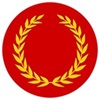Languages at Leicester
Latin
 For anyone with an interest in European history however, a working knowledge of Latin is essential. The earliest examples date back to the third century BC but it was the expansion of the Roman Empire which established Latin as a lingua franca around the Mediterranean. Even after the decline and fall of Rome, Latin remained an important language across Europe, used for legal and administrative documents and taught (where education existed) as an essential subject.
For anyone with an interest in European history however, a working knowledge of Latin is essential. The earliest examples date back to the third century BC but it was the expansion of the Roman Empire which established Latin as a lingua franca around the Mediterranean. Even after the decline and fall of Rome, Latin remained an important language across Europe, used for legal and administrative documents and taught (where education existed) as an essential subject.
Latin flourished during the renaissance and continued to be used throughout the 16th, 17th and 18th centuries by scholars and especially by scientists. Great books written and published in Latin include Thomas More's Utopia, Copernicus' De revolutionibus orbium coelestium, Newton's Principia Mathematica, Linaeus' Systema Naturae and works by Milton, Kepler, Hobbes, Galileo, Huygens and Spinoza.